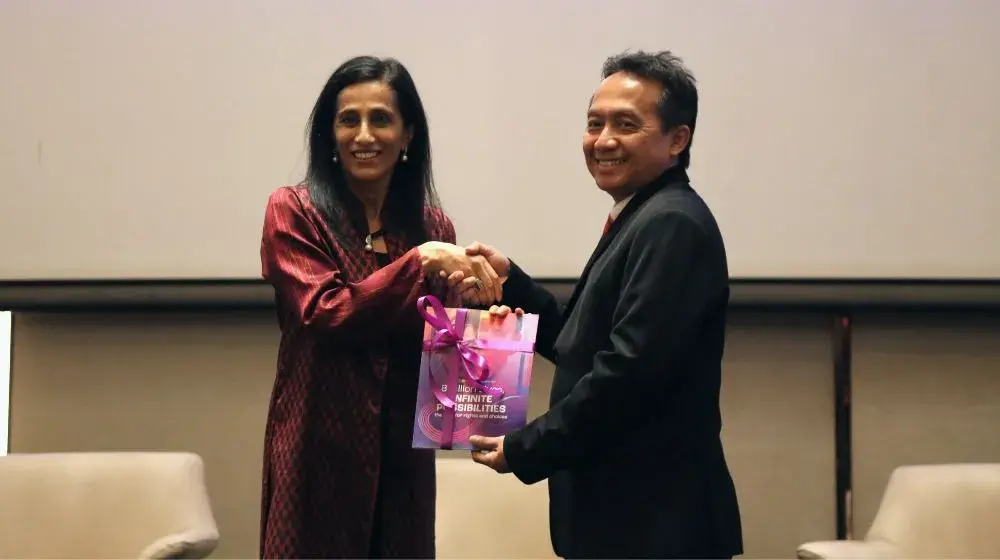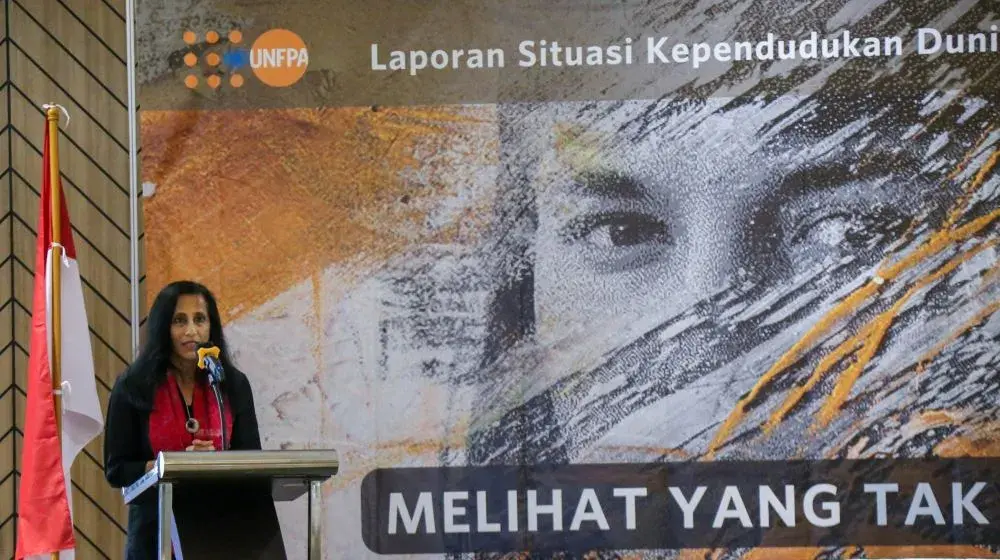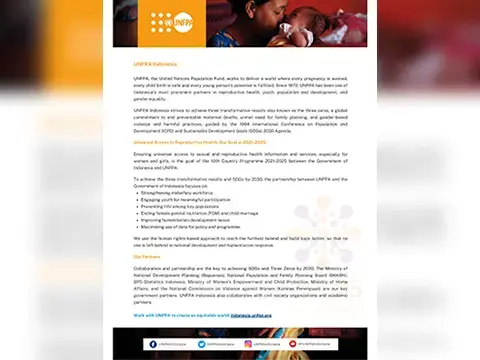Jakarta, 12 September 2013 – The Minister for Youth and Sports, His Excellency Roy Suryo Notodiprodjo, has met on Tuesday with the UN Resident Coordinator and heads of United Nations agencies in Indonesia to discuss collaboration on youth development between the Ministry of Youth and Sports (MOYS) and the United Nations system.
Speaking at the meeting, the Minister said that a strategic approach for the development of Indonesian youth is very important given that the population of the country is experiencing a youth bulge and demographic bonus. The Minister said the structure of Indonesia’s population “brings both challenges and opportunities that need to be addressed and harnessed in order to achieve Indonesia’s development goals.”
The Minister highlighted that there are 65 million Indonesian youth aged between 16 and 30, which “represents a surge in the potential for social and economic benefit—but we must ensure that this potential is leveraged wisely.”
One of the key principles of the Ministry’s work – beyond the elaboration of the national strategy – is to promote youth leadership and full participation in the process of decision making in all sectors and stages of development.
The Minister said that collaboration with development partners is vital for the Post-2015 Development Agenda. “There is also a need for assistance from development partners like United Nations, in the form of advice and technical guidance, on how best to manage these critical issues”, the Minister said.
Key challenges faced by Indonesian youth include education and employment, according to an expert adviser to the Minister, Mr. Deibel Effendi. He also emphasized the need for mapping the work done by 17 different Government Ministries with youth programmes in order to improve coordination.
Mr Douglas Broderick, the Resident Coordinator for the United Nations in Indonesia, said the United Nations has prioritised youth globally through the United Nations Inter-Agency Network on Youth Development (IANYD). UNFPA, the United Nations Population Fund, has been appointed as the chair of IAYND in Indonesia for 2013-2014. “The IANYD will provide technical assistance to the Government of Indonesia, particularly the Ministry of Youth and Sports, to support youth development initiatives and activities,” said Mr Broderick.
“We are aware that youth issues cut across many different areas, ” Mr. Broderick said, adding that the IYAND brings UN expertise in areas such as education, employment, human rights, and health care.
The agencies attending the meeting with MOYS were UNFPA, the United Nations Children's Fund (UNICEF), the United Nations Development Programme (UNDP), United Nations Educational, Scientific and Cultural Organization (UNESCO), the United Nations Industrial Development Organisation (UNIDO), UN Habitat, UN Volunteers, the United Nations Information Centre (UNIC), the International Labor Organization (ILO), the Office for the United Nations High Commissioner for Refugees (UNHCR), the World Health Organisation (WHO), and the Joint United Nations Programme on HIV/AIDS (UNAIDS).
Mr José Ferraris, UNFPA Representative in Indonesia, said that “enhancing young people’s capacities in education, health care, employment and participation support them to be agents of development during the course of their lives – now and in the future.” He also said it is important to provide access to health, including sexual and reproductive health information, education, and services, to support young people’s healthy transition to adulthood.
The first initiative of the collaboration with MOYS and the United Nations IANYD will be the development of the National Youth Strategy 2015-2019, which will feed into the National Medium-Term Development Plan (RPJMN) 2015-2019.
Over the next few months, MOYS and the United Nations will conduct activities in the first phase of the initiative. Mr. Angga Dwi Martha, Youth Advocate at UNFPA, said that Youth Mapping will be conducted to identify existing youth organizations, programmes, partnerships and priorities in Indonesia. In addition, a Youth Monograph will analyze the available population data on youth in Indonesia, with special focus on the implications of the youth demographic bonus on future policies.
A National Youth Seminar and Youth Consultation will be held in December 2013 to gather stakeholders in order to identify the way forward regarding youth issues in Indonesia. Further activities will be planned on the basis of the findings of the Youth Mapping and Youth Monograph, and MOYS intends to present the National Youth Strategy 2015-2019 to the President of Indonesia in May 2014.
“I fully support the cooperation between the United Nations in Indonesia and Ministry of Youth and Sports in the development of the National Youth Strategy 2015-2019,” the Minister said.
Tags: youth





